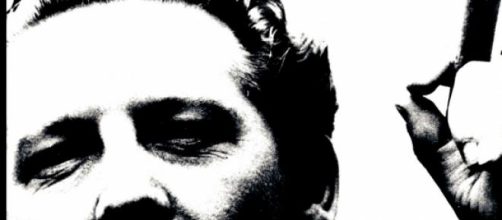Jerry Lee Lewis is one of the most colourful characters in the music business. In the 1950s he was a founding father of rock'n'roll with piano-pounding classic hits such as A Whole Lotta Shakin' Goin' On. From the 1960s he enjoyed a successful career as a country singer. In the past decade, like Johnny Cash before him, he's enjoyed a late life resurgence of acclaim for albums such as Last Man Standing and his current release Rock & Roll Time.
So it's a pity Jerry Lee Lewis - His Own Story, released this month as a weighty paperback, is more exhausting than exhaustive.
The problem is that Lewis, who is scheduled to play a farewell tour of the UK in September, has always been hard to interview. He's a man of one-line quips and bold pronouncements rather than reflective discourse. Even given unprecedented access to the rock star over the course of two summers, there was no way co-author Rick Bragg would have been able to ghost-write a memoir in Lewis' own words. As Bragg admits early in the book, Lewis shared his memories "when he felt like it, for as long as he felt like it."
So although Lewis' quotes pepper the book, and provide the tastiest titbits, it was left to Bragg to fill in the rest - and every page feels like he's trying too hard to impress with his overblown prose.
The other problem with His Own Story is that Lewis' story has already been told in several much better books.
Nick Toshes' 1982 account, Hellfire - The Jerry Lee Lewis Story, is widely and rightly acclaimed as one of the greatest rock biographies ever written. Like Bragg, Toshes over-writes, but his baroque style perfectly catches the swagger and spirit of one of Lewis' live shows. It's certainly consistent with a wild, drunken backstage interview with Lewis and his father that forms the book's centrepiece.
Also published in 1982 was Great Balls of Fire by Lewis' third wife Myra Lewis with Murray Silver. Myra was 13-years-old when she married Lewis in the 1950s and her inside story coupled to Silver's diligent research provides a detailed and definitive account of Lewis' early life, rise to fame and fall from grace in the scandal surrounding his child bride.
Another personal account is provided by Lewis' sister Linda Gail Lewis in The Devil, Me and Jerry Lee. Ghost writer Les Pendleton achieved with Linda Gail what Bragg couldn't do with Jerry Lee: he vividly captures and maintains her exuberant, over-the-backyard-fence style of speaking throughout a slim, punchy and often extremely funny memoir.
Jerry Lee previously told his story to Charles White in Killer! The 1995 book was subtitled "The Baddest Rock Memoir Ever," but the barely edited collection of interviews was described by one music magazine as "the shoddiest."
Jimmy Gutterman's 1991 publication Rockin' My Life Away is a song-by-song critique of Lewis' music and an informative companion to his work. Also worth reading is Unconquered, J.D. Davis' 'triography' of Lewis and the closely related careers of his cousins, the country singer Mickey Gilley and televangelist Jimmy Swaggart. Published in 2012, Unconquered is as up-to-date as His Own Story but with far less padding.
© ALL RIGHTS RESERVED

